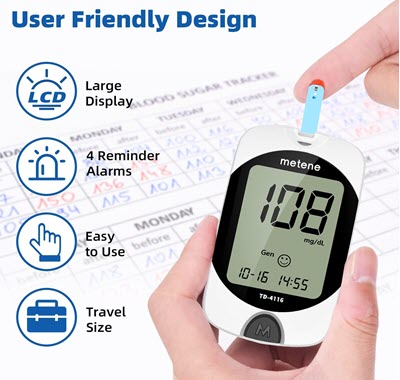
Living with diabetes comes with its own set of challenges, and for many, the fear of hypoglycemia, especially during sleep or after exercise, can be particularly daunting. But fear not! With the proper knowledge, tools, and strategies. We’ll walk you through a step-by-step approach to mastering the fear of hypoglycemia and embracing a more empowered life with diabetes.
What is Hypoglycemia?
Causes of Hypoglycemia:
-
Diabetes: Over-insulinization or excessive glucose-lowering medication.
-
Medications: Certain medications, such as beta-blockers and certain antibiotics.
-
Fasting or skipping meals: Prolonged periods without food.
-
Excessive physical activity: Strenuous exercise without adequate food intake.
-
Alcohol consumption: Drinking alcohol on an empty stomach.
-
Hormonal Imbalance: Hormonal changes, such as those experienced during menstruation or menopause.
-
Kidney or liver disease: Impaired glucose metabolism.
Symptoms of Hypoglycemia:
-
Shakiness or tremors
-
Sweating
-
Dizziness or lightheadedness
-
Confusion or disorientation
-
Slurred speech
-
Fast heartbeat
-
Hunger
-
Loss of consciousness
-
Seizures
-
Brain damage (in severe cases)
Treatment of Hypoglycemia:
-
Quickly consuming glucose-rich foods or drinks (e.g., fruit juice, candy, or glucose tablets)
-
Glucagon injection (in severe cases)
-
Adjusting medication or insulin dosages (for people with diabetes)
-
Eating regular, balanced meals to prevent future episodes
Knowledge is Power: Educate Yourself
The first step in conquering any fear is understanding it. Take the time to learn about hypoglycemia, its causes, symptoms, and treatment. Understand how factors like sleep and exercise affect your blood sugar levels. This knowledge is your power, the key to feeling more in control and less fearful. Stay updated on the latest diabetes management techniques. The more you know, the more confident you’ll feel handling any situation.
Build Your Dream Team: Consult with Healthcare Professionals
You don’t have to go it alone. Regular check-ups with your endocrinologist, sessions with a Certified Diabetes Educator, and consultations with a nutritionist and fitness trainer can provide you with a personalized management plan tailored to your unique needs. This support is here to reassure you that you’re not alone.
Keep a Close Eye: Implement Robust Blood Sugar Monitoring
Reliable monitoring is critical to preventing hypoglycemic episodes. Consider using a Continuous Glucose Monitoring (CGM) system in addition to regular glucose meter checks. Learning to interpret and act on your glucose data knowledge is your best defense against unexpected lows.
Be Prepared: Develop a Hypoglycemia Action Plan
Create a step-by-step protocol for handling low blood sugar. Keep fast-acting carbohydrates easily accessible, and teach family members and friends how to assist you in an emergency. Being prepared can significantly reduce anxiety about potential lows. Note Orange juice is the best for fast recovery
Fine-Tune Your Approach: Optimize Your Medication Regimen
Work closely with your doctor to fine-tune your medication dosages. Consider using long-acting insulins to reduce nighttime lows and exploring newer diabetes medications that are less likely to cause hypoglycemia.
Master the Numbers: Carbohydrate Counting
Accurate carb counting is crucial for proper insulin dosing. Practice estimating carbs in your meals, and use apps or books to help you. The better you become at matching insulin doses to carb intake, the more stable your blood sugar levels will be.
Sweet Dreams: Establish a Consistent Sleep Routine
Set regular sleep and wake times and check your blood sugar before bed. If your doctor recommends it, consider having a small bedtime snack. A stable nighttime routine can help alleviate fears of nocturnal hypoglycemia.
Move with Confidence: Develop an Exercise Strategy
Exercise is crucial for overall health but can also affect blood sugar levels. Check your levels before, during, and after workouts. Learn how different types of exercise impact your blood sugar and adjust your insulin and food intake accordingly.
Embrace Technology: Use Digital Tools to Your Advantage
From CGM nighttime alarms to diabetes management apps and intelligent insulin delivery devices, technology can provide an extra layer of security and precision in your diabetes management.
Find Your Zen: Practice Stress Management
Stress can affect blood sugar levels and amplify fears. Learn relaxation techniques like deep breathing or meditation. Consider cognitive-behavioral therapy to address anxiety and engage in regular physical activity to reduce stress.
You’re Not Alone: Join a Support Group
Connect with others who share similar experiences. Groups provide a platform to share tips and coping strategies and gain emotional support. Remember, you’re part of a community that understands your challenges.
Safety First: Prepare for Emergencies
Always carry a hypoglycemia emergency kit and wear medical ID jewelry. Teach others how to use glucagon in case of severe hypoglycemia. Being prepared for worst-case scenarios can provide peace of mind. Note carry some orange or apple juice with when out and about.
Stay Flexible: Regularly Review and Adjust Your Management Plan
Diabetes management isn’t static. Keep detailed records, analyze your data to identify patterns, and work with your healthcare team to make necessary adjustments to your plan. This proactive approach puts you in charge of your health, ensuring your management plan is continually optimized for your needs.
Holistic Approach: Focus on Overall Health
Remember that diabetes management is just one part of your overall health. Maintain a balanced diet, stay hydrated, and get regular health check-ups, including eye and foot exams.
Celebrate Your Journey: Build Confidence Through Practice
Attend diabetes education classes or workshops to expand your knowledge and continually practice handling various scenarios in a safe environment. Most importantly, celebrate your successes in managing your condition—every step forward is a victory!
Remember, mastering the fear of hypoglycemia is a journey, not a destination. It takes time, effort, and patience. But with each passing day, your confidence will grow as you implement these strategies and gain more experience. You’ve got this!
By taking control of your diabetes, you’re not just managing a condition—you’re embracing a health, awareness, and empowerment lifestyle. Here’s to your journey towards confident and fearless living with diabetes!
This guide addresses the common concern of hypoglycemia fear among people with diabetes, particularly during vulnerable times like sleep or after exercise. The article provides a step-by-step approach to building confidence in blood sugar management, covering education, professional consultation, monitoring techniques, medication optimization, and lifestyle strategies. It emphasizes the importance of preparation, technology utilization, and ongoing learning in mastering diabetes control of their condition and reducing anxiety associated with potential low blood sugar episodes, ultimately leading to a more confident and fulfilling life with diabetes.
Disclaimer:
It’s always recommended to consult with a healthcare professional before starting any new supplement regimen.
Affiliate Disclaimer:
This article contains affiliate links. If you purchase through these links, I may receive a small commission at no additional cost. It helps support my work and allows me to continue providing valuable content. I only recommend products or services that will add value to my readers. I appreciate your support!
Try My Healthy Meal Planner
Transform your meal planning with our Healthy Meal Planner GPT! This personalized tool helps you create balanced, organic meal plans tailored to your dietary needs and nutritional goals. Enjoy delicious recipe suggestions, easy grocery lists, and tips for efficient meal prep. Stay motivated and on track with our supportive, friendly guidance. Start your journey to a healthier you today!

